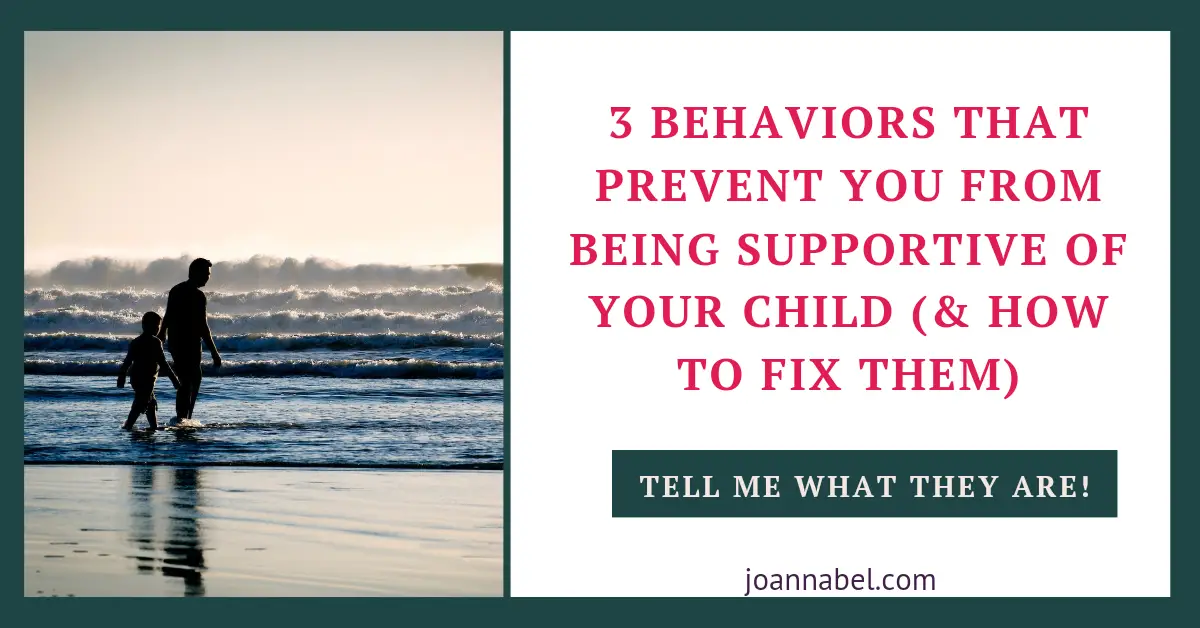Parents often hear that authoritative parenting is “the best parenting style,” but what makes it so different from the rest? Why does it lead to better relationships, children with higher self-esteem, and calmer homes? The answer lies in balance — the balance of validation and responsibilty, care and limits, togetherness and independence, flexibility and structure.

Why Is Authoritative Parenting The Best?
This post explores why the authoritative parenting style stands out when we look at both research and real family life, and how it meets children’s deepest human needs while keeping family connections strong.
Note: Although I am a Clinical Social Worker, engaging with this website does not establish a professional social worker-client relationship. The information provided here is for general purposes only and should not be considered professional advice. While we strive to ensure accuracy and reliability, this content is not a substitute for professional guidance. For specific concerns, issues, or situations, it is essential to consult a qualified professional and present your situation. Read the full Disclaimer here.
What Is the Authoritative Parenting Style?
Authoritative parenting is seen as the healthiest and most balanced approach to raising children. It combines:
- a parent’s emotional warmth and responsiveness (kindness, affection, and care),
- well-balanced structure (kids experience expectations and limits and are guided by their parents) and
- respect for a child’s rising autonomy (a parent tolerates + promotes a child’s independence and ensures a child is included in the conversation as well as their participation in decision-making.).
Authoritative parents are invested in taking care of the child, they set clear expectations but also listen, explain, and guide. They encourage separation and independence while staying emotionally connected — not through fear or control, but through understanding and communication.
This style doesn’t mean being lenient, and it’s far from being controlling. It’s about maintaining firm boundaries and emotional closeness — two elements that allow children to grow secure, responsible, and more self-assured.
- For more details on this parenting style, check out: Authoritative Parenting: Characteristics and Effects that Make It the Best Style.
Where the Idea Comes From
The term “authoritative parenting” was introduced by Diana Baumrind, a developmental psychologist who studied how different patterns of parenting approaches affect children’s behavior and development. She identified three main styles — authoritarian, authoritative, and permissive — each based on a parent’s level of control and emotional warmth (high or low in different combinations for each style.)
Later, David Olson, a family therapist, expanded our understanding of family dynamics through his Circumplex Model. His model inspects families on the basis of how balanced levels of family cohesion (closeness), flexibility, and communication are. From his perspective, authoritative parenting represents a balanced (healthy) middle ground — where relational flexibility, engagement, closeness and separation coexist naturally.
So what creates positive outcomes is when families are engaged, close with tolerance for separation, and flexible as opposed to disengaged and too separated, rigid, too close (enmeshed – enforcing togetherness because separation is not tolerated) or too flexible (chaotic).
Together, Baumrind’s and Olson’s frameworks help us see why the authoritative approach supports not only prosocial behavior but also mental health and well-being, family harmony, and long-term stability.
What Makes Authoritative Parenting Different
Since authoritative parents balance warmth and structure well, they are kind but consistent, firm but fair. Children know what’s expected of them — and they also know they can talk about how they feel.
Unlike authoritarian parents, who rely on control and strict obedience, or permissive parents, who let children wander or even lead without real limits, authoritative parents guide with reason and decentering + empathy.
They maintain closeness/togetherness without becoming overbearing, and they allow flexibility without losing structure. Everyone has a voice, but parents still lead with confidence.
Read also: 10 Benefits of Authoritative Parenting: for Parents and Kids.
Why It Works: Meeting Core Human Needs
The reason authoritative parenting is so effective is that it meets children’s core human needs:
- The need to feel cared for, loved, and understood.
- The need to feel safe and guided.
- The need to feel free to grow, explore, participate, and initiate.
This style nurtures emotional security and teaches responsibility at the same time.
Children raised by authoritative parents tend to develop better self-control, higher self-assuredness and self-reliance, as well as stronger problem-solving skills — not because they were pressured, but because they were allowed to be autonomous, they were trusted and supported.

Authoritative parents are responsive, not reactive. They explain rules, show and model respect, and teach through connection rather than fear.
What’s also critical is that they allow kids to negotiate for themselves because they treat them as equals in the relationship. That balance helps children form a secure sense of self.
The Role of Family Dynamics
In balanced families, closeness and independence work together.
Authoritative parents allow separation — they let children explore their environments and make choices where they can fail — while staying emotionally available. They don’t withdraw love when things go wrong, and they don’t smother when things go right.
In contrast, authoritarian parents may be “too close” in the sense that independence is not tolerated and control is critical, while permissive ones may be “too loose,” with unclear family roles (parents vs. children) and vague expectations.
Authoritative families find that middle ground — where connection feels secure and individuality is respected but not excessive (example: children who are too independent because their parents don’t recognize or are disregarding their needs.)
Check out also:
Parenting Styles and Cultural Context
Parenting styles don’t exist in isolation. They are shaped by cultural expectations, traditions, and values. What may seem strict in one culture might be normal or even caring in another.
This suggest that more strictness, more permissiveness, or more togetherness in some cultures won’t necessarily lead to bad outcomes concerning the child’s development or performance.
Baumrind’s research also confirmed this – a group of girls she observed who were raised in rather strict African American families have grown into very competent, self-assured, and stable personalities.

Most of what we know about parenting styles comes from Western world research, so it’s important to keep in mind that childhood and child-rearing are not universal. Yet across cultures children thrive when they are guided with warmth, fairness, and clear, respectful communication and interactions.
The democratic (authoritative) style, therefore, appears beneficial across cultures because it aligns closely with children’s/human fundamental needs — love and care, structure, respect, and guidance. So it’s about how we treat children and humans that matters most.
Read also:
Common Misunderstandings About Authoritative Parenting
Being authoritative doesn’t mean being perfect. It’s not about controlling gently or explaining endlessly — it’s about being consistent and clear about the expectations we have for the child while staying kind, understanding and compassionate enough towards the child.
Some parents worry that setting rules will make them harsh; others try so hard to be understanding that they stop enforcing limits. Both extremes miss the point.
The strength of authoritative parenting is in balance: rules with reasons, warmth with structure, love with accountability.
Ask Yourself: How Authoritative Is My Parenting?
Reflect on these questions to see where your current approach stands:
- When my child breaks a rule, do I focus more on connection and understanding or on punishment and control?
- Do my children know the reasons behind my rules, or do they simply obey because “I said so”?
- When conflict occur (not disagreements but conflicting positions), do I listen to their perspective, even if I disagree?
- Do I give my child space to express themselves — to make choices, mistakes, fail, and grow — while still keeping firm limitations?
- Am I modeling (self-)respect and empathy in the way I treat them and others?
Any parent can lean a little more one way or another — what matters most is awareness. The more balance you bring regarding emotional warmth and positive guidance, the more your parenting becomes not just effective, but deeply meaningful.
Latest Posts:
- The Importance of Play in Child Development

- 5 Hobbies That Will Help You Connect With Your Teens

- A Guide to Balancing Parenting Roles After Divorce

- Gifts for Your Teenager That They’ll Actually Enjoy

- 6 Reasons Your Teenagers Seem Distant and Distracted

- Special Gifts to Let Someone Know You’re Thinking of Them (13)

FINAL THOUGHTS ON WHY AUTHORITATIVE PARENTING STYLE IS THE BEST
Authoritative parenting is considered the best parenting style because it reflects what every child truly needs — connection, guidance, and space to grow. It builds a home where love feels safe, boundaries feel fair, and independence is encouraged.
Children raised in this environment learn to trust themselves, respect others, and handle life’s challenges better.
It’s not about being the perfect parent — it’s about being present, balanced, and responsive, creating a family atmosphere where everyone can thrive.
If this answered your questions, you may also find this post usefu:








Leave a Reply